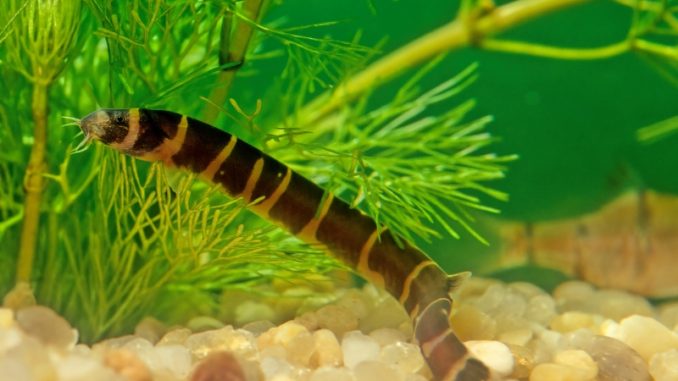
Bottom feeder fish are a great addition to any aquarium, and there’s so much more to them than meets the eye. These unique creatures have many benefits that make them worth considering when setting up an aquatic environment for your pet fish. From types of bottom feeders available to proper care and maintenance tips, this article will cover everything you need to know about keeping these fascinating species in your home aquarium. So let’s dive right into it and explore all the wonderful things that bottom feeder fish can bring.
Table of Contents:
- Types of Bottom Feeder Fish
- Care and Maintenance for Bottom Feeders
- Benefits of Keeping Bottom Feeders in Your Aquarium
- Conclusion
Types of Bottom Feeder Fish
Catfish:
Catfish are a type of bottom feeder fish that come in many shapes and sizes. They have barbels, or whiskers, around their mouths which help them to find food on the tank floor. Common types of catfish include Corydoras, Pictus, and Plecostomus. These fish can be peaceful or territorial depending on the species and should not be kept with aggressive tank mates.
Loaches:
Loaches are another type of bottom feeder fish that come in a variety of colors and patterns. They tend to live in groups so it is best to keep at least three together for optimal health benefits. Popular loach species include Clown Loach, Yoyo Loach, and Kuhli Loach. These fish prefer tanks with plenty of hiding places such as caves or driftwood as they like to hide during the day time hours when they’re not actively searching for food on the substrate surface.
Plecos are one of the most popular types of bottom feeder fish due to their unique appearance and behavior patterns. They have an armored body covered in bony plates which helps protect them from predators while also providing camouflage against other tank inhabitants if needed. Common pleco species include Bristlenose Pleco, Royal Pleco, Gold Nugget Pleco, etc., all with different colorations ranging from browns, tans, greens, yellows, blues or oranges depending on the species chosen by an aquarist looking for something unique within their aquarium setup.
Care and Maintenance for Bottom Feeders
Tank Setup:
When setting up a tank for bottom feeders, it is important to provide them with plenty of space. A minimum tank size of 20 gallons is recommended. The substrate should be fine sand or gravel, and decorations such as rocks and driftwood can also be added to create hiding places for the fish. It’s also important to make sure that there are no sharp edges in the aquarium that could injure the fish.
Diet and Nutrition:
Bottom feeders require a diet rich in plant matter such as algae wafers, blanched vegetables, and frozen foods like bloodworms or brine shrimp. They will also benefit from occasional treats such as live worms or snails. It’s important not to overfeed your bottom feeder fish since they tend to eat more than other types of fish due to their scavenging nature.
Water quality is very important when keeping any type of fish, but especially so for bottom feeders who are sensitive to changes in water parameters. The pH level should be between 6-7 with an alkalinity around 5-10 dKH (degrees Kelvin hardness). Temperature should remain consistent at around 75°F (24°C) using an aquarium heater if necessary. Regular partial water changes are essential for maintaining good water quality; aim for 25% weekly or 10% biweekly depending on the size of your tank and number of inhabitants
Benefits of Keeping Bottom Feeders in Your Aquarium
Cleaning the Tank Floor and Decorations:
Bottom feeders are great for keeping your tank clean. They will scour the bottom of the tank, eating up any leftover food or debris that has settled there. This helps to keep your aquarium looking neat and tidy, as well as preventing build-up of uneaten food which can lead to water quality issues.
Nutrient Cycling and Waste Management:
Bottom feeders help to cycle nutrients in your aquarium by consuming waste material such as fish feces, decaying plant matter, and other organic detritus. This helps to keep nitrate levels down in the water column which is beneficial for both fish health and water clarity.
Adding variety to your aquarium can be a great way to add some diversity while still maintaining good water quality parameters. Many species of bottom feeders have interesting behaviors such as scavenging along the substrate or playing hide-and-seek with their tank mates, providing hours of entertainment for both you and your fish.
Conclusion
In conclusion, bottom feeder fish are a great addition to any aquarium. They can help keep the tank clean and provide an interesting dynamic for other fish in the tank. With proper care and maintenance, these fish can live long and healthy lives in your home aquarium. Keeping bottom feeders is a great way to add variety to your pet fish collection, so why not give them a try?
Are you looking for a unique pet fish to add some personality to your tank? Bottom feeder fish are the perfect addition! They help keep the tank clean by eating any leftover food and debris, while adding an interesting element of activity. Plus, they come in many different sizes and colors so there’s something for everyone! Investing in bottom feeders is not only beneficial to your aquarium but also helps promote healthier ecosystems. Join us today as we explore solutions that make keeping these amazing creatures safe and healthy even easier!

Be the first to comment